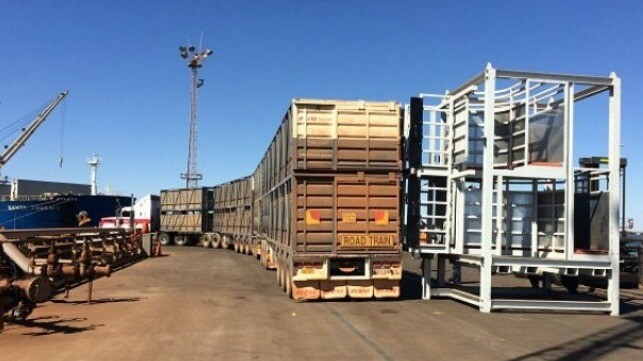GOOD NEWS
Australia to Phase Out All Live Export Within Four Years

The government of Australia plans to say farewell to the continent's dwindling live export trade, and will introduce legislation to phase it out altogether within four years. Live export is controversial because of often-difficult onboard conditions for the livestock, and it generates comparatively little revenue for Australian producers, opponents say. Under the plan, ranchers who depend on live export will be provided with transition support and will be encouraged to make the switch to domestic processing.
“The community expects Australia to have the world’s best animal welfare practices,” agriculture minister Murray Watt said. “I understand that some in the community will want to see the trade stopped tomorrow, and others not at all. As a government we have taken the time to get this right."
Australian live sheep exports have been declining for decades, and dropped from AUD$415 million in 2003 to AUD$77 million in 2023 - less than one tenth of one percent of Australian agricultural production. Meanwhile, the demand for processed sheepmeat has been growing, both at home and abroad. Sheepmeat exports (lamb and mutton) are up by 300 percent over the same 20-year period, with strong growth to traditional markets in North Africa and the Mideast.
The government hopes that ranchers who used to export their sheep alive will be able to process them locally and humanely instead, creating new jobs in Australia. The Australian government is setting aside AUD$107 million to help Western Australian ranchers adapt to the change, including funds to expand domestic sheep processing capacity.
"Processing sheep here in Australia adds value locally, supports increased farm gate returns and creates local jobs," said agriculture minister Murray Watt in a statement. "[Transition support] will be available to help all parts of the sheep industry supply chain, from farmers, to truckies, to shearers and processors. We are putting support on the table now so that people can start planning and acting now."
The decision draws on an independent panel report on how and when to conduct the phase-out. The government adopted many of the key features of the panel report, including the date (early 2028), the legislative package, and the system of transition supports for farmers. The panel also recommended allowing more migrant workers to come into the country to staff meat processing plants, via a skilled migration program.
Some in the sheep-ranching community are not happy that live export will come to an end, and are concerned that even with the transition assistance, it will be the end of their businesses. "Our welfare standards are absolutely top notch," rancher David Slade told news.com.au. "It wasn’t good before, there’s no doubt about that. We own that. We’ve made sure that that doesn’t happen again."
The National Farmers Federation (NFF) added its voice to the opposition. "Murray Watt has decided to book us on the express train to disaster, but this isn’t the final chapter in this story. We’ll keep fighting," NFF CEO Tony Mahar said in a statement.
No comments:
Post a Comment